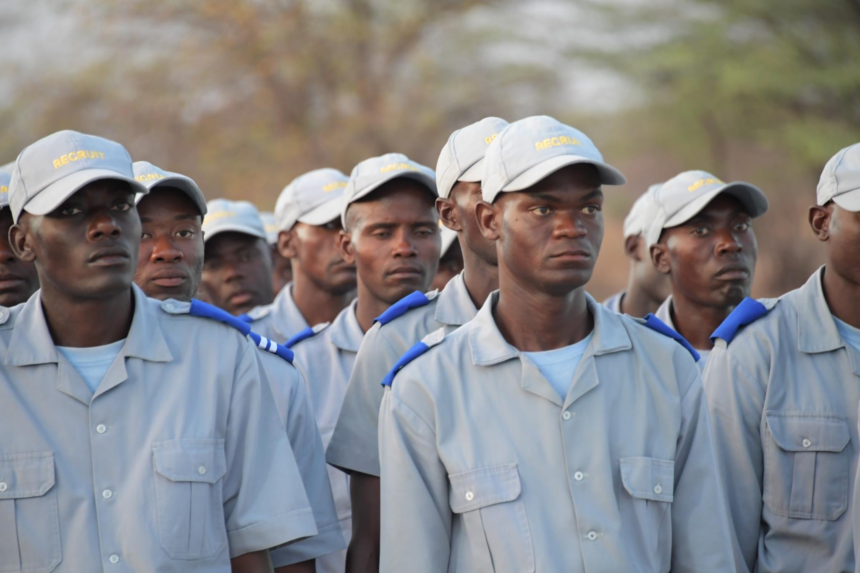KATIMA MULILO – Police supremo Joseph Shikongo says policing is not just a job, but a calling to serve and protect the nation.
Being a police officer, he added, is also a beacon of hope, and a source of reassurance to those in need.
He made the remarks this week during the official opening ceremony of the Police Basic Training Course One of 2024/2025 at Simon Mutumba Mutumba Police Training Centre in Katima Mulilo.
“Policing requires unwavering commitment, integrity and genuine passion to make a positive difference in the lives of others. The training of these cadet constables will equip them with the necessary skills, knowledge, and values to become guardians of justice, pillars of society, and protectors of peace and security,” Shikongo said.
“The training is not solely about acquiring knowledge and technical skills; it is also aimed at transformation, cultivating good character, promoting ethical conduct, and instilling a deep sense of obedience and respect for human rights,” he said.
About 285 cadet constables, comprising of 121 males and 164 females, have embarked on the path of becoming guardians of peace, order, and justice for the great nation.
The training intervention is running concurrently with similar training taking place at the Pius Joseph Kaundu Police Training Centre in Omaheke, and the Ruben ‘Danger’ Ashipala Police Training Centre in Oshana, with a combined total of 1 509 cadet constables.
The cadets went through a rigorous selection process that identified qualified individuals, drawn from the National Youth Service and the civilian component of the Namibian Police Force.
They will undergo training for a period of nine months, whereby the first six months will be theory and the last three months will be for work-integrated learning.
Shikongo said the recruitment is aimed at addressing the shortage of manpower in the Namibian Police Force and, in the same vein, reducing unemployment among the youth.
“During the training, the trainees will be transformed to become physically fit, possess tactical skills, and also understand the values that define the Namibian Police Force. Each day of this training will be a step towards forging character and fortitude, imparting knowledge and skills to enable them to serve our nation with unwavering dedication, loyalty, honour, and dignity,” heo said.
The cadets are currently undergoing intensive training in various aspects of police discipline, such as the basics of law, policing, charge office administration and management, drill and musketry, as well as physical education.
Moreover, they will be exposed to how to properly use and discharge firearms and other weapons, and how to avoid using excessive force.
Training enables the officers to understand and respond to their communities, build trust and promote cooperation between law-enforcement and the
public.
Therefore, Shikongo stressed this training will equip them with professional skills that will allow them to respond effectively and efficiently to typical situations and challenges. This includes learning how to follow a reasonable course of action in emergencies and under non-standard conditions.
In addition, the training modules cover contemporary policing issues such as transnational organised crimes and social issues like stress management, emotional intelligence and financial literacy.
As public servants, he encouraged the cadets to take their training very seriously and acquire the knowledge, skills, and competencies coupled with a transformation of beliefs and aptitude to suit the law enforcement fraternity.
“It is generally a hectic, tiring, physically and mentally demanding undertaking. This means that the amount of work and activities to be covered in six months is so intensive that little time and space is left for other things,” he reminded them.
He warned, “You are expected to be exemplary at all times in terms of discipline and dressing code. Hence, unprofessional behaviours or disregard for cultural diversity would not be tolerated. I, therefore, encourage you to steer the course to its logical conclusion.”



